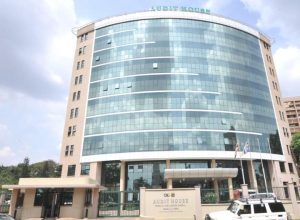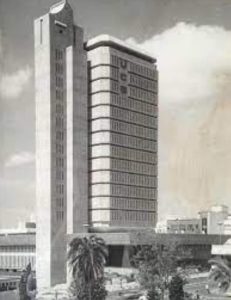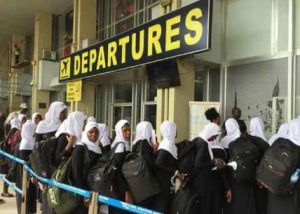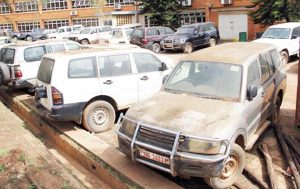
#OutToLunch Physical people counting a serious blow to e-government aspirations
By Denis Jjuuko Some people say that Uganda is a movie on a looping reel with one blockbuster after another. But in this rolling movie that is Uganda, something remains constant. Otherwise, how do you explain that in 2023, the government of Uganda is going around the country head counting its employees! Apparently, some Ugandan civil servants create employees that don’t exist and then draw salaries and allowances for them. It all started, at least famously (or infamously) with a one Captain Dan Byakutaaga, an army paymaster who used to move around with sacks of US dollars to pay soldiers that didn’t exist. Some people allege that Byakutaaga was a ghost as well as nobody seems to ever have taken a photo of him. Nobody knows where he disappeared to and no family has ever come out to look for him. But Byakutaaga must have inspired the next generations of civil servants that more than 20 years later, the existence of ghost employees has led to the Office of the Auditor General (OAG) to move around the country counting people, physically. When the “people counters” come to an office to verify whether you exist, they ask for your letter of appointment and then the national identity card. Whether you are sick or on leave or on some life saving assignment, you must be available to be physically counted. The most intriguing requirement needed by the verifiers is the national identity card. With a national ID, one would expect that a smart phone or web-based application could be developed that can automatically link to the database at the National Identification and Registration Authority (NIRA) and automatically verify whether the person exists or not and bring out all the information that the verifiers need. Every employee would simply log in, provide details, attach a PDF or Word Format or JPEG file of their appointment letters and then they are automatically matched with their national ID and other data that the OAG is looking for. The app could also take a photo or fingerprints of the person to ascertain the person submitting the data is human or not (again matching it with the fingerprint data at NIRA). Where there are discrepancies, the person can then be asked for more information or appear in person at a certain office in a given timeframe. Developing this app would actually be more progressive than physical verification of employees. It would be cheaper too and revolutionary. Because, this isn’t the first time government is doing physical verifications. Every few years, they claim there are more kids in public schools than not. A team of people counters is then sent to every school to verify the existence of the pupils. Nobody hears from these people until when another count is being carried out. I expect the OAG to make this counting a routine exercise. Yet technology would sort it out in one go. The app would just need to be updated from time to time cheaply and efficiently. Government can ensure that whoever dies or leaves government employment, the data is updated by instituting severe penalties for accounting officers who don’t do so. The app can be linked to staff registration systems at all government offices. Like in most private sector organisations, staff log in every time they report to work (even where they may not be in a physical office). Physical counting of people is a symptom of poor governance and a significant blow to our e-government aspirations. As we were busy people counting, we learned that the highest institutions of learning are teaching expired academic courses. When the information was first shared, universities competed for space on which one has the most expired courses with one public statement after another. Universities didn’t even know that their courses were either expired or have never been renewed. The National Council for Higher Education (NCHE) didn’t know too. They also didn’t know whether there is even a legal framework under which courses expire. Again, an app can send automatic reminders to academic registrars that their courses are about to expire and they should do something about it. It doesn’t even cost much. Any kid with interest in computers can develop one. Yet all our universities have some computer studies course units of sorts. Free such apps exist as well. Government every once in a while, sings about e-government, ICT, IT or whatever new catchword is easy to roll off their tongues. They even have an authority—NITA—where people are employed to work on these kinds of things but what do we do? We physically count people every few years to establish they aren’t ghosts. We can’t register deaths yet every death is almost announced on public radios and people are largely buried by thousands of people who gather and mourn for days. We need to cut this movie reel and start again. The writer is a communication and visibility consultant. djjuuko@gmail.com











